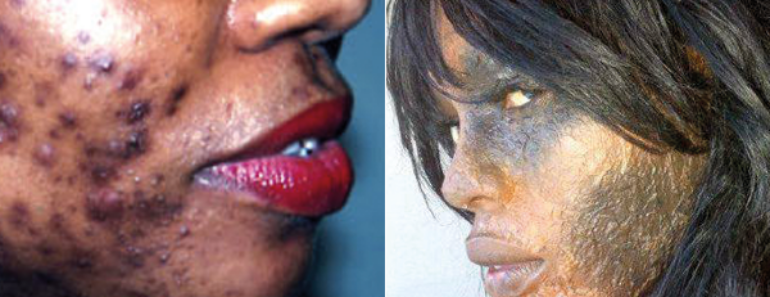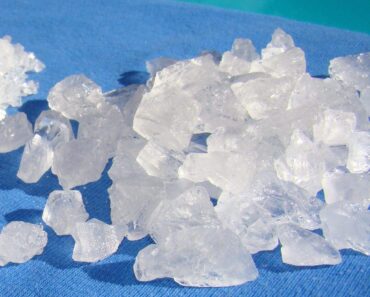Skin bleaching, also known as skin lightening, is a concerning phenomenon in Africa. This practice, aimed at lightening one’s natural skin color, poses numerous dangers to the physical and mental health of individuals. This article aims to raise awareness about the risks associated with skin bleaching in Africa and promote preventive measures to combat this issue.
Lire aussi : Exploring the Impact of Social Media on American Politics and Democracy
Skin bleaching in Africa poses significant health risks.
The products used to lighten the skin often contain harmful chemicals such as hydroquinone, corticosteroids, and mercury. These ingredients can lead to dermatological problems, including skin irritations, infections, burns, and even increased sensitivity to UV rays. Furthermore, long-term use of skin bleaching products can result in psychological dependence, deterioration of skin quality, uneven pigmentation changes, and impaired healing. Additionally, some studies have also linked skin bleaching to an increased risk of skin cancer.
In addition to the physical risks, skin bleaching can also have a significant impact on individuals’ mental health and well-being. Social pressure and beauty standards often influence this practice, creating negative self-image and diminishing self-esteem in those who do not fit the imposed beauty standards.
The devaluation of natural beauty and the idealization of fair skin can also lead to psychological issues such as anxiety, depression, and eating disorders. Individuals may feel constant pressure to conform to these aesthetic norms, which negatively impacts their self-confidence and overall happiness.
It is crucial to raise awareness about the dangers of skin bleaching and promote preventive measures to combat this practice in Africa. Awareness should begin at an educational level, informing individuals about the health risks and psychological consequences of skin bleaching. It is essential to highlight the beauty of diverse skin colors and promote self-acceptance.
Governments and regulatory bodies should take strict measures to regulate the sale and use of skin bleaching products containing hazardous substances. Media campaigns, educational programs, and community initiatives can also play a vital role in preventing skin bleaching by promoting the value of natural beauty and challenging harmful beauty stereotypes.
Skin bleaching in Africa poses numerous dangers to individuals’ health and well-being. It is imperative to raise public awareness about the risks associated with this practice and promote effective preventive measures. By valuing the diversity of skin colors and promoting self-acceptance, we can contribute to creating a society that celebrates natural beauty. Governments, regulatory bodies, healthcare professionals, and civil society must work together to put an end to skin bleaching in Africa and foster a positive vision of beauty and health.
Thank you for reading this article on the dangers of skin bleaching in Africa. It is our hope that through increased awareness and preventive measures, we can combat this harmful practice and promote a culture of self-acceptance and appreciation for natural beauty. By working together, we can create a healthier and more inclusive society that celebrates the diverse beauty of Africa. Let us embrace our unique identities and inspire others to do the same, fostering a future where everyone can feel confident and proud in their own skin.
→ READ ALSO : The Dangers of Skin Bleaching in Africa: Awareness and Prevention
→ READ ALSO : Story Grants to Support Indigenous or Ethnic Minority Journalists
→ READ ALSO : The Benefits of Alum: A Mineral with Many Assets
Suivez tous les scores en direct ici !




